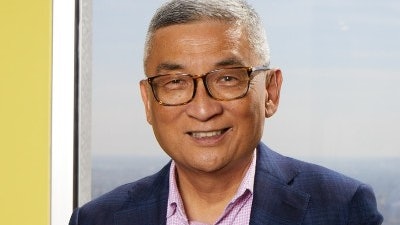Today’s college students want to go to schools and work for companies that align with their values, including an emphasis on diversity, according to a panel discussion this Monday on the topic of “Student Values: What’s Driving Our Future Talent?” as well as interviews with the panelists.
The panel was part of the AACSB Societal Impact Conference, a two-day gathering in New York hosted by the Association to Advance Collegiate Schools of Business, a non-profit that is one of the major accreditors of business schools. The conference’s theme this year is “Leaders Accelerating Change.”
According to Bill Imada, chief connectivity officer of the IW Group, a multicultural marketing agency, and moderator of the panel, the students that he’s meeting are seeking authenticity.
“They come in saying that they want a company that is definitive about their purpose, knows who they are, and not only talks about it, but shows it,” he said. “They want to see it, they want to feel it, they even want to taste it.”
From what Imada has seen, diversity is key to this.
“I think diversity is something that this generation has really championed,” he said. “They want to see it in all forms, not just in lived experiences, not just on racial and ethnic diversity, but also other forms of diversity as well. Inclusiveness around people with disabilities, the LGBTQI community, diversity of being able to express yourselves in a safe place, with a little empathy. But going beyond empathy and doing something about it. If the company does nothing about it, I think that that’s a problem for them.”
When asked to discuss his college experience, panelist Rohan Nipunge, a student at the University of Colorado, Denver, said that the diversity of the student body was a significant positive factor.  Bill Imada
Bill Imada
“The school that I go to is 50% students of color, 50% students that represent the first generation, and the stories that I continue to hear every single day from the students that I go to school with inspire me,” he said. “A lot of the students that I go to school with work full-time while taking on a full-time class load to make ends meet. Other students are parents. Other students are pursuing an education in hopes of living a better life than what they’ve seen for the past two or so decades. Being in that community, being enriched in that community, has really given me a first-hand experience in the true value of diversity.”
Panelist London Clark, a student at the Stern School of Business at New York University, agreed.
“One of the things that I’ve taken from my work experience as well as being in an MBA program is that the most interesting, intellectually stimulating, thought-provoking conversations and projects that I’ve been able to work on are the ones that are a very diverse group of individuals,” she said. “You kind of have to ask people about those things and create a safe space and get to know one another in order for people to even feel comfortable bringing that to the table, but once you can get to know each other on a human level, then I think you work together so much better and you produce work. It’s just a more fulfilling work environment. That’s something that as I look for employers after graduating, I’m really trying to get that from the hiring managers, from the recruiters.”
For attendees of the conference, the importance of diversity extended to the conference itself. Imada pointed out that students at the conference had noted that earlier sessions lacked diversity, and, during the question-and-answer portion of the afternoon, an audience member critiqued the panel for not representing any African perspectives.
From these moments and from the words of the panelists themselves, it’s clear that corporations looking to attract young talent will ignore diversity at their peril. Talking the talk won’t be enough. Companies will have to show that they are truly serious about incorporating perspectives and experiences of all kinds.
Jon Edelman can be reached at [email protected].














